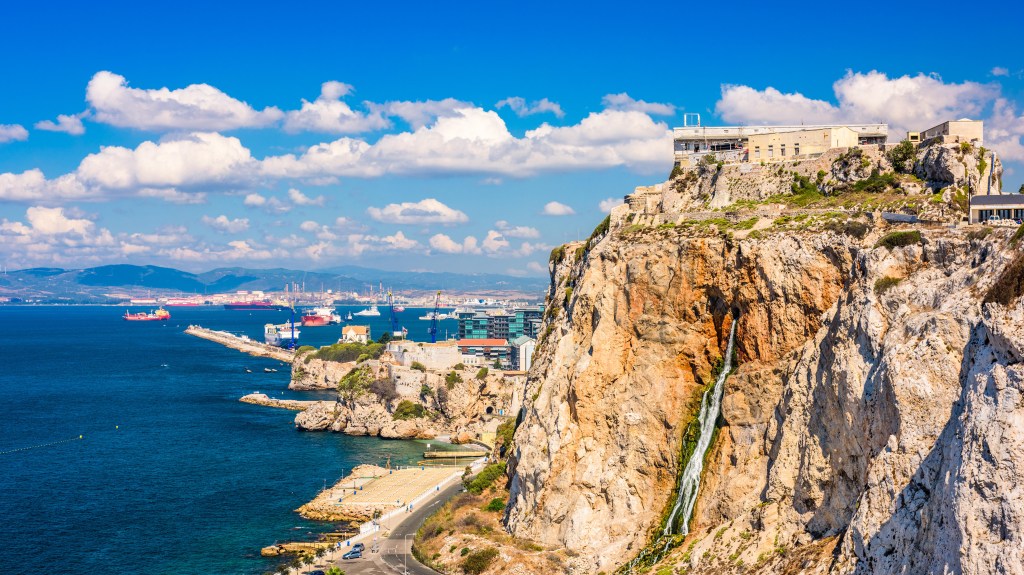Concerns Grow Over Gibraltar’s Waters Due to Russian Oil Smuggling
In 2023, apprehensions are rising regarding the environmental risks associated with the transportation of Russian crude oil through the Strait of Gibraltar, as reports reveal that over 50% of this oil is being moved by aging “shadow fleet” vessels.
According to a report by the Kyiv School of Economics (KSE) Institute, from January to June, approximately 56 million barrels of crude oil—amounting to 51.3% of all seaborne Russian oil—traversed the strait. These tankers had an average age of 17 years, raising significant safety concerns.
In addition, around 29.4 million barrels of oil products were also transported through the area on Russia-associated vessels, which were on average 19 years old.
Many Western oil firms generally retire their tankers at the 15-year mark due to maintenance costs and deterioration.
The territorial waters of the UK extend three nautical miles around Gibraltar, while the remaining sections of the strait belong to Spain or Morocco.
Past incidents involving the shadow fleet have sparked fears of potential disasters. For instance, in February of the prior year, two tankers from this fleet faced challenges in the Bay of Gibraltar, necessitating assistance from rescue vessels. Notably, both ships had recently altered their names and flags to those of Palau and Gabon.
Since Russia’s incursion into Ukraine, at least 12 other incidents involving shadow fleet vessels have been recorded globally.
Research conducted by the Centre for Research on Energy and Clean Air, a non-profit organization, revealed a staggering 355% rise in the number of shadow tankers utilizing the Dover Strait from January to August 2023, compared to the same timeframe in the previous year.
Authorities have voiced increased concerns regarding the risk of oil spills tied to these vessels in European waters. David O’Sullivan, the EU’s sanctions envoy, highlighted that the existence of the shadow fleet poses an imminent ecological threat, urging the international community to take this issue seriously.
In July, the UK led a collective initiative with various nations addressing the environmental and maritime safety challenges posed by the shadow fleet.
In reaction to the report’s findings, a representative from the UK Chamber of Shipping stated, “There is much we do not know about these vessels. While they are evidently aged, we face challenges in assessing the risks they present regarding ecological harm without detailed surveys.”
A government spokesperson from Gibraltar warned that a significant spill in the strait could lead to the deaths of thousands of seabirds during specific seasons.
The anxiety surrounding ecological hazards is heightened by the realization that many of these tankers may lack sufficient insurance to cover clean-up costs in the event of spills.
A study presented to parliament by State Capture—an NGO in the Netherlands—and the KSE Institute estimated that a potential oil spill in the English Channel could incur clean-up costs of around £1.05 billion. However, details about the insurance status of shadow fleet vessels remain scarce, as such information is generally held by the vessel’s flag state and not disclosed to external parties.
Furthermore, the Russian insurance market, which is believed to cover parts of the shadow fleet, is not known for effectively compensating spill-related claims due to the sanctions on major insurance providers like Ingosstrakh.
The KSE Institute’s report advocates for new policies targeting the shadow fleet. Their recommendations include automatic sanctions against tankers that fail to meet insurance disclosure requirements or whose coverage does not satisfy basic criteria, rather than the current individual assessments adopted by many countries.
In September, the UK imposed sanctions on an additional ten ships connected to the shadow fleet, raising the UK’s total to 25 sanctioned vessels. However, this figure is still lower than that of the United States, which has reportedly curtailed its own sanctioning efforts during the first half of the year.
Of all strategies aimed at curtailing the shadow fleet’s activities, specific sanctions have proven most effective. The 74 vessels currently designated by the US, UK, and EU have resulted in an estimated financial loss of $2.5 billion for Russia, with only five being able to complete voyages post-designation.




Post Comment